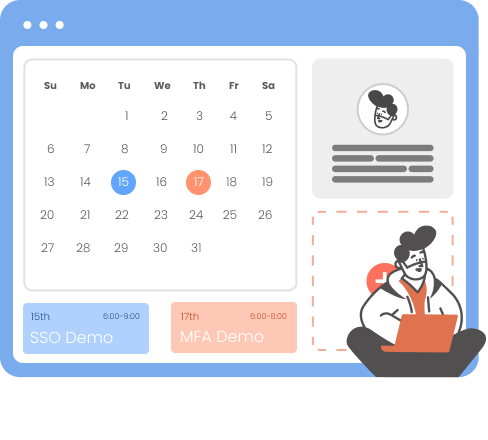Need Help? We are right here!
Search Results:
×An MFA (Multi-Factor Authentication) solution is a security mechanism used to ensure that users are who they claim to be before they are granted access to a system, application, or resource. It requires users to provide multiple forms of verification, typically combining something they know (like a password), something they have (like a smartphone or hardware token), and something they are (like a fingerprint or other biometric data).
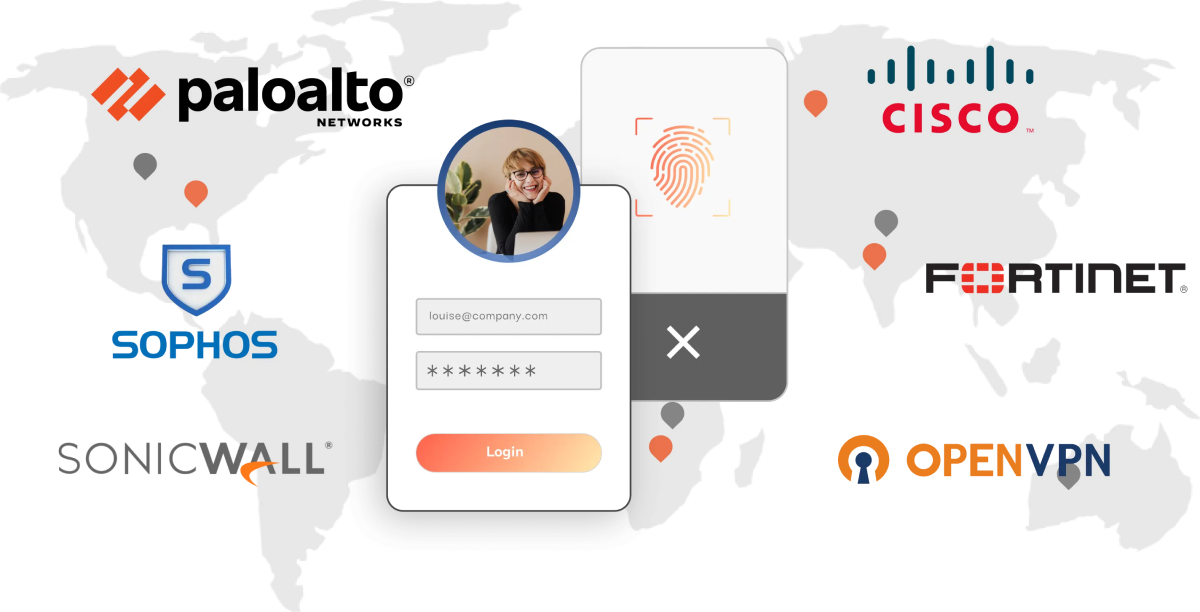
Hackers exploit vulnerabilities in VPNs using tactics like stolen credentials, malware, weak passwords, and social engineering. By implementing Multi-Factor Authentication (MFA) for VPNs, you can significantly reduce unauthorized access and breach of privacy.
miniOrange VPN MFA supports:
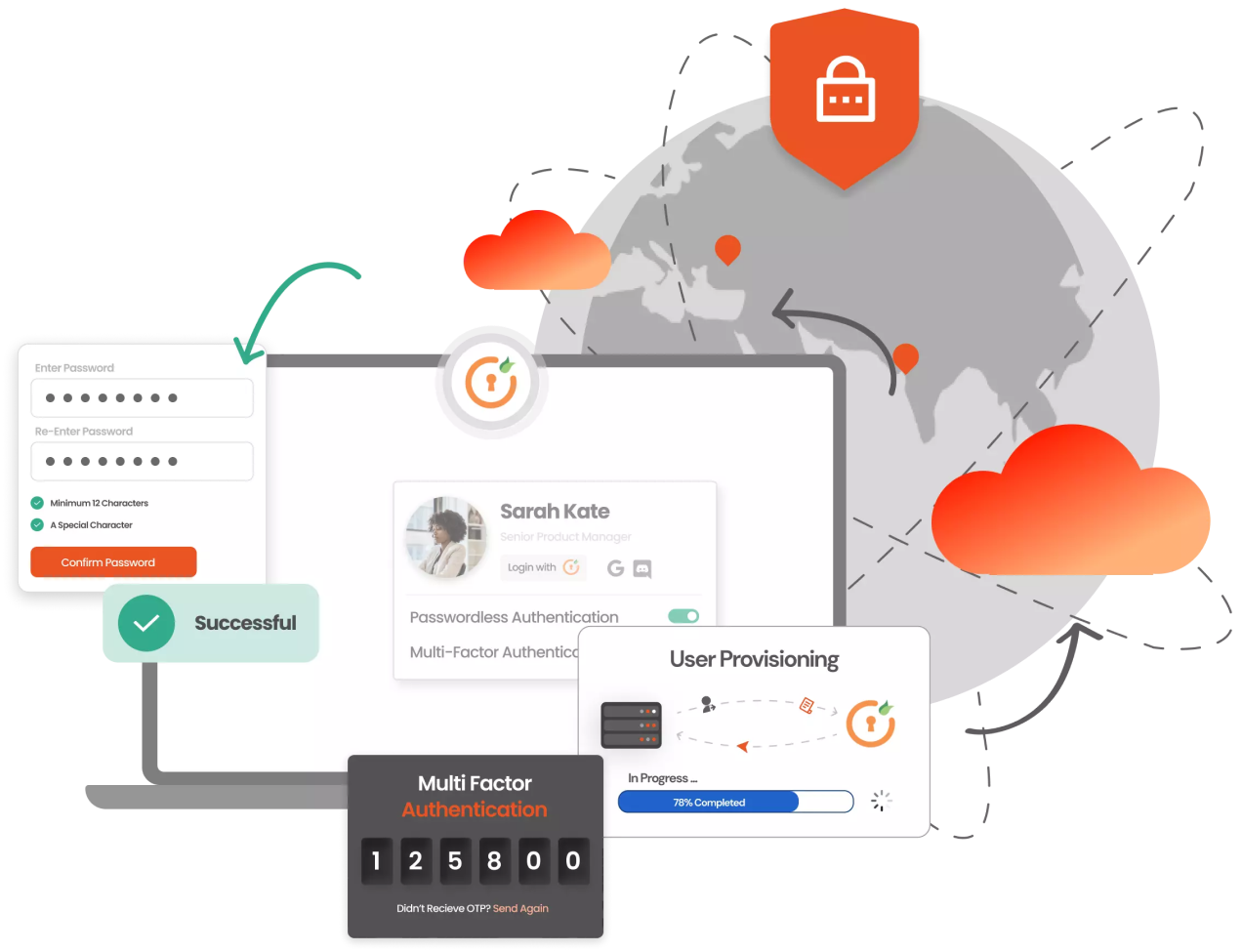
Multi-Factor Authentication (MFA) is a powerful solution to fortify the security of Windows, RDP, Linux, and MacOS platforms. The miniOrange MFA module seamlessly integrates with Microsoft Remote Desktop Web Access (RD Web), ensuring MFA access. The MFA implementation isn't restricted to Windows—it also spans to Linux and MacOS.
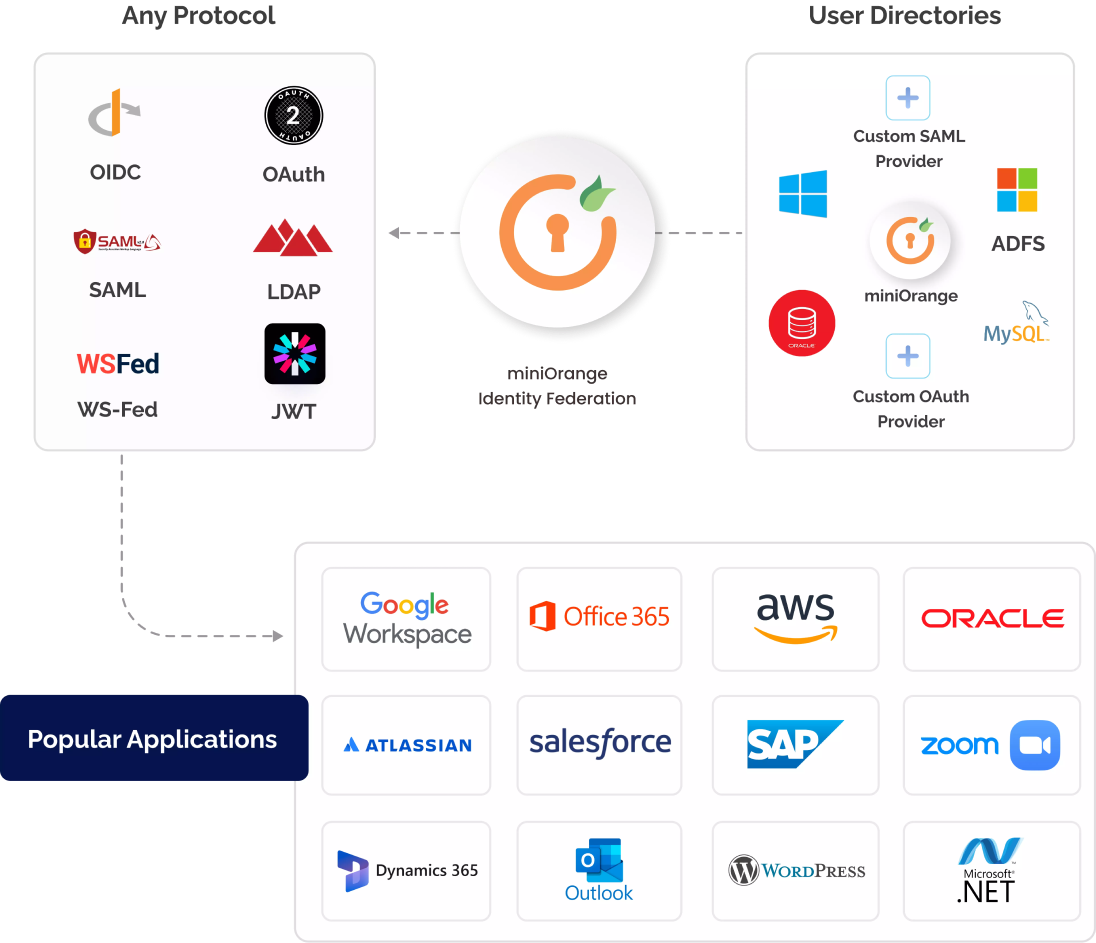
miniOrange MFA solution safeguards various application types — Cloud, On-Premises, & In-House, while supporting all authentication protocols like SAML, Radius, Open ID, and JWT. Replace outdated password-based authentication with modern MFA security. Even if your custom app built on PHP, .NET, React, Angular, or Node.js, lacks support for standard protocols, miniOrange seamlessly integrates MFA, enhancing security across your app landscape.
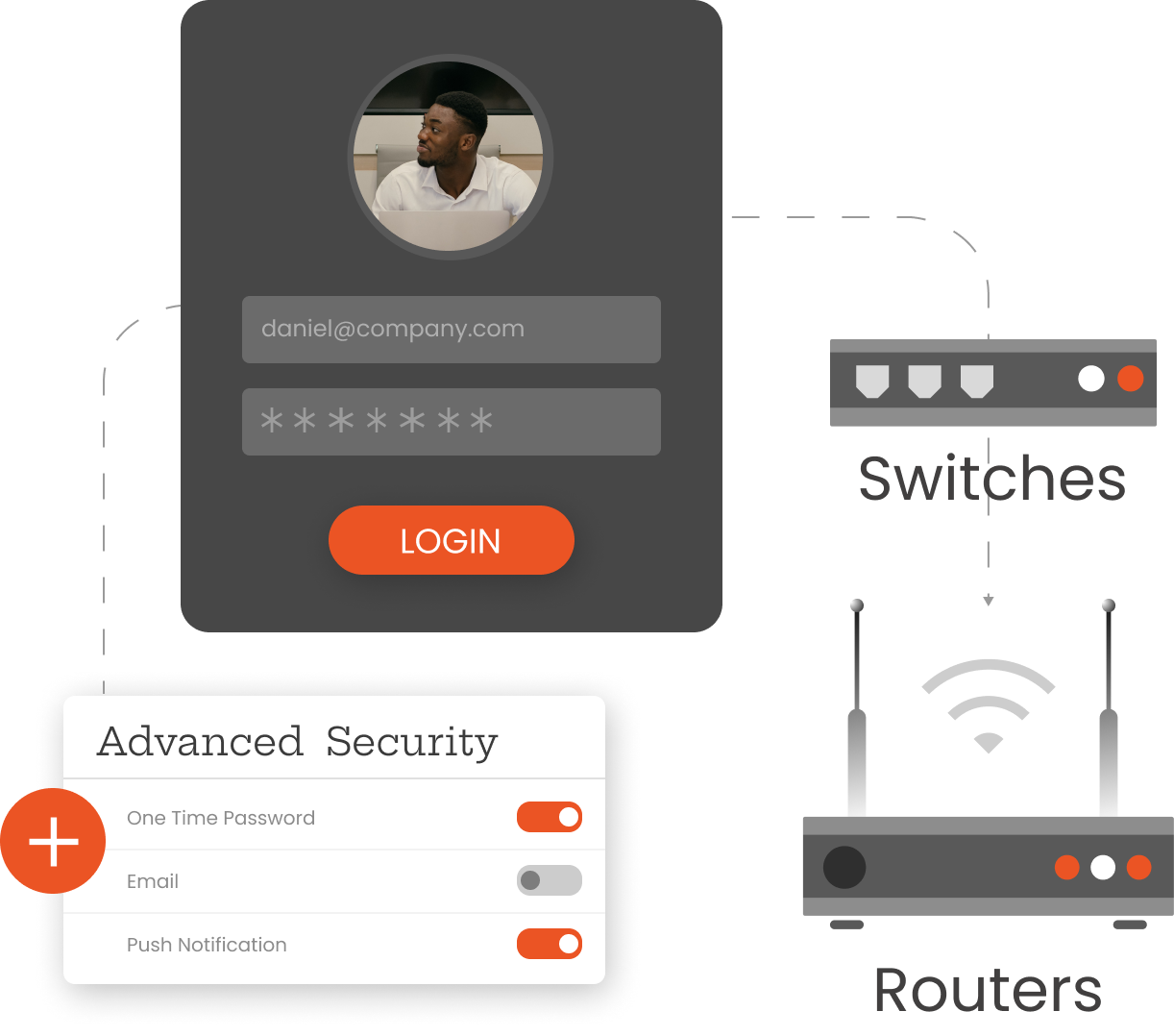
Implement MFA security for firewalls, switches, routers, and other network devices with the miniOrange MFA solution that extends beyond VPNs, and fortifies your entire corporate network. Leverage Radius & TACACS protocols with miniOrange to encrypt switches and routers based on your network's hardware capabilities and add Multi-Factor Authentication to enhance the security posture.
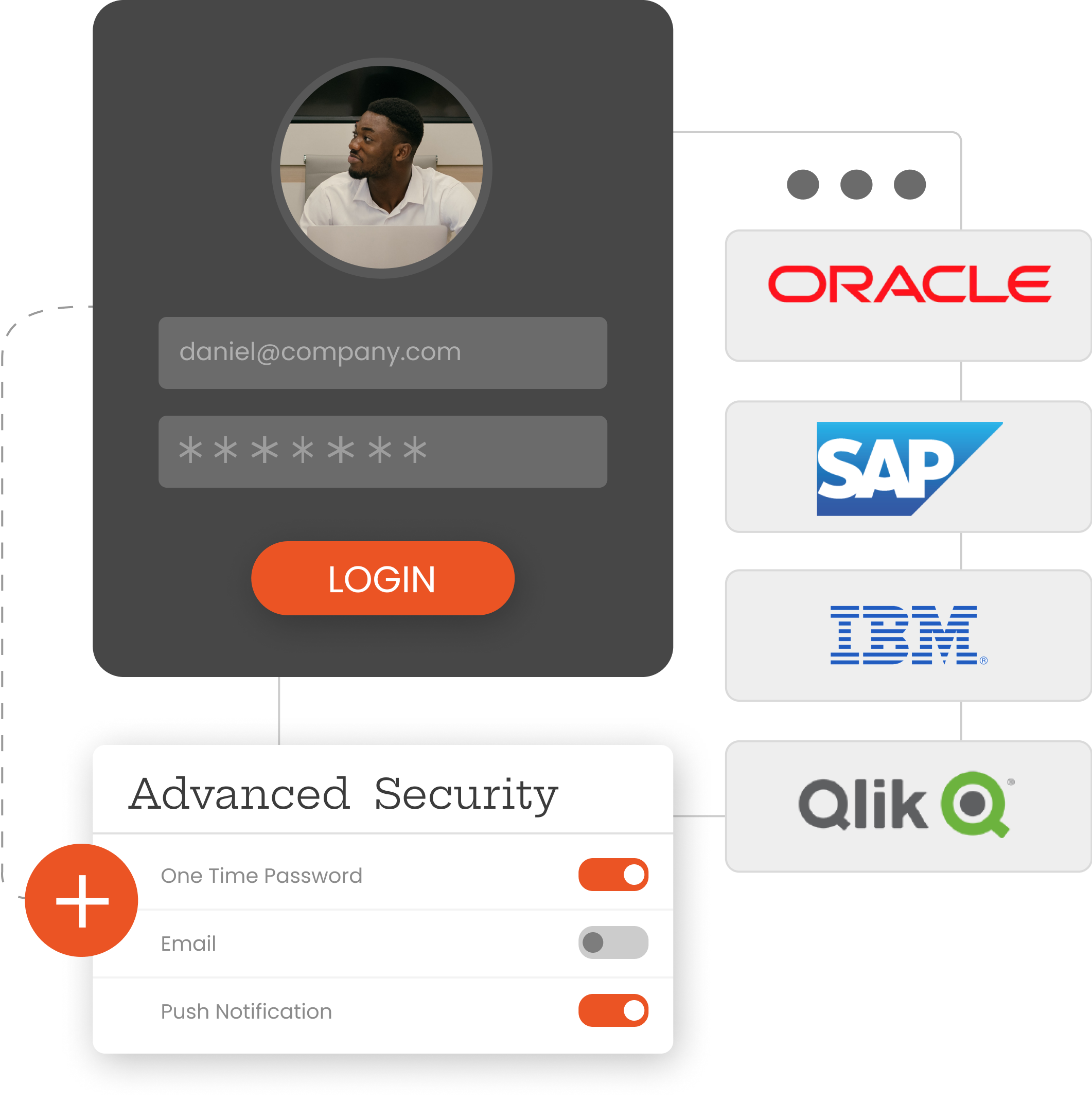
Safeguard valuable historical data and meet compliance requirements with MFA services and secure legacy applications like Oracle EBS, QlikView, PeopleSoft, & Siebel CRM. Our advanced Multi-Factor Authentication solution seamlessly integrates with these legacy systems, delivering modern security without operational disruptions.







Uses biometrics for secure, hardware tokens, or public key cryptography to prevent unauthorized access, making it difficult for attackers to exploit or intercept authentication factors.
Integrates MFA, user & device management, and Single Sign-On (SSO) into a single, cohesive platform for streamlined security.
Implements dynamic access controls based on user ip, location, device, and other contextual factors, with policies that adapt to risk signals.
The Simplified User Enrollment feature allows users to easily enroll in MFA via the miniOrange portal, selecting their preferred method from admin-approved options during their first login, streamlining the implementation process.
Offline Multi-Factor Authentication (MFA) secures user identity using multiple authentication factors without needing internet connectivity, ensuring strong security in offline environments.
Better Reporting & Compliance Support provides detailed insights into user logins with MFA, featuring session management, user monitoring, login audits, and activity reports. Ensuring compliance with international regulations like GDPR, HIPAA, NIST, and SOX.
Identity solutions from miniOrange can be easily deployed in your organization's existing environment.
*Please contact us to get volume discounts for higher user tiers.
MFA strengthens security with extra layers beyond passwords and simplifies administration with easy integration and user management.
MFA solutions are designed to grow with your organization. They can accommodate increasing numbers of users and adapt to evolving security needs without requiring major changes or disruptions.
MFA ensures secure access for employees working from various locations, whether from home or in a hybrid setup, by providing robust authentication methods that work across different environments.
MFA solves the problem of unauthorized access by adding extra layers of security beyond just passwords.
MFA is used in various settings, including online accounts, corporate networks, and secure applications to enhance security.
Types include SMS codes, email links, biometrics, authenticator apps, hardware tokens, and more. The choice depends on security needs and user convenience.
Companies use MFA to protect against unauthorized access, reduce the risk of breaches, and comply with security regulations.
Risks include potential phishing attacks, device loss, and user resistance. However, these are mitigated with proper implementation.
Biometric factors and hardware tokens are often considered the strongest due to their difficulty in being replicated or stolen
